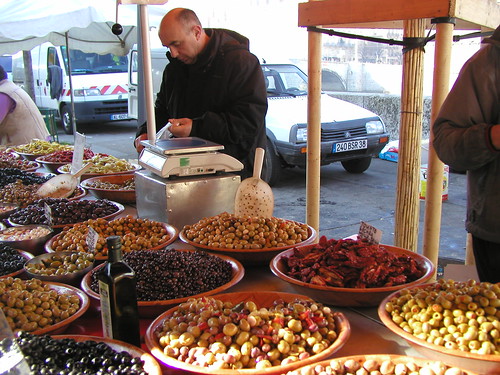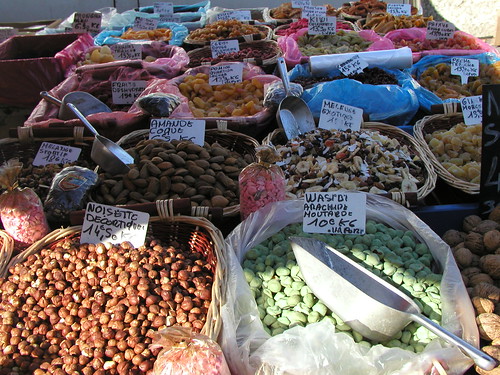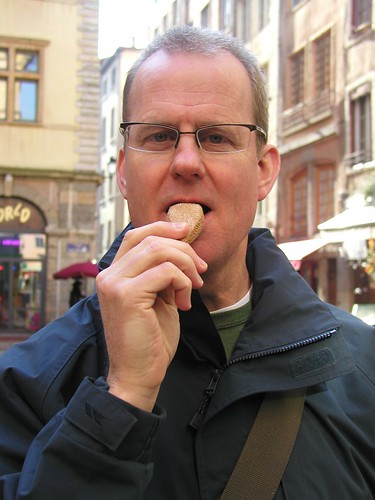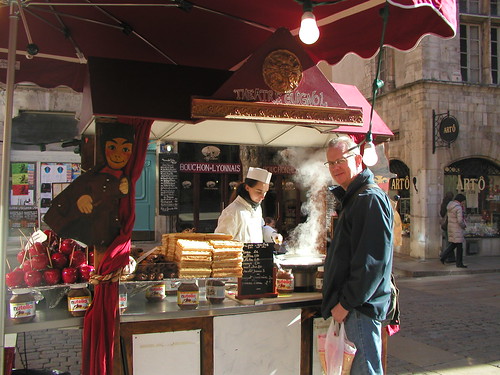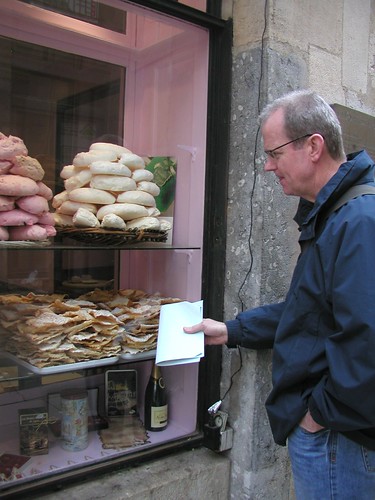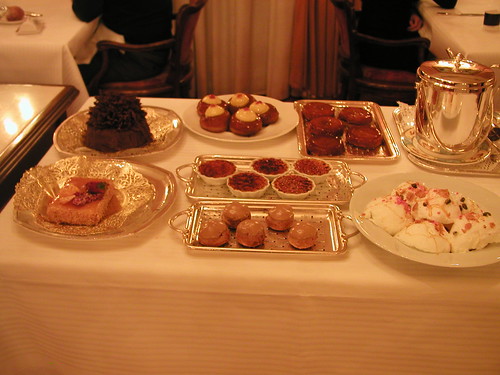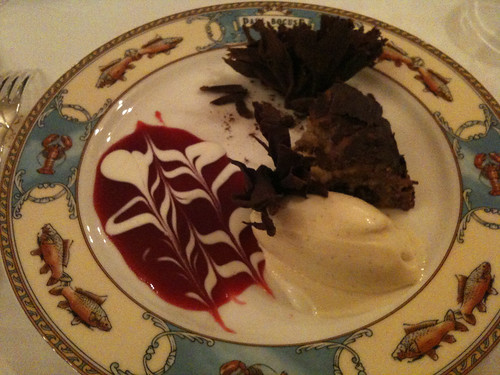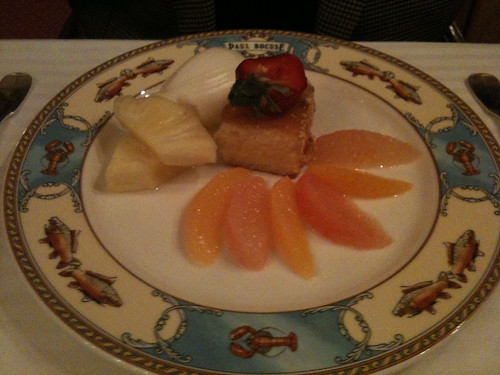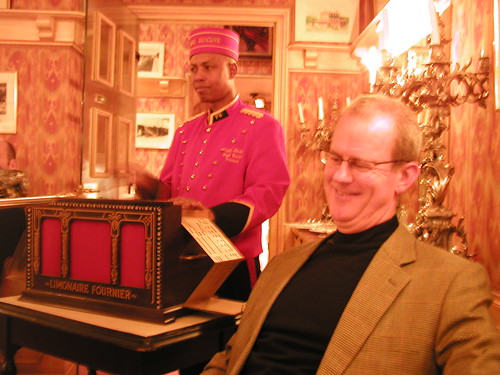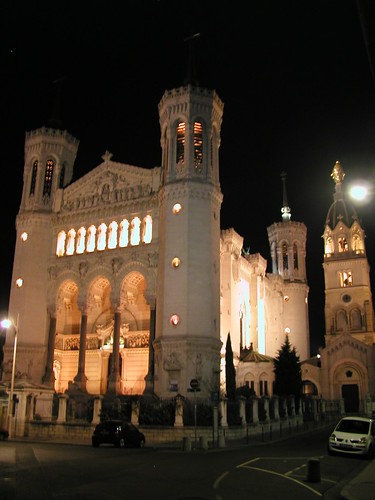Catch you on the flip side.
Friday, May 20, 2011
T-2 days: Edinburgh marathon
I have done all the training, eating, stretching, etc. I can do for the last 5 months. The race is here. Wish me luck!
Chiswick Choir: Mozart, 1791 – His Last Year
On April 9, 2011, I was finally able to return to singing with my choir, the Chiswick Choir, after a break in 2010, and participate in the concert entitle: Mozart, 1791- His Last Year.

1791 saw the composition of four of Mozart's most sublime works; the Clarinet Concerto, the opera La Clemenza di Tito (The Mercy of Titus), the singspiel Die Zauberflöte (The Magic Flute) and his unfinished Requiem Mass. It is well known that Mozart's widow, Constanze, took pains to have the Requiem completed in order to receive the promised fee. Two full concert performances of the opera were given in her own 'benefit' concerts, with all the musicians and singers donating their services.
The evening's program included:
* The La Clemenza di Tito (excerpts)
* Missa da Requiem
My entourage for this evening's concert included the Budman, Confused Swiss, and Martini. Thanks guys for the support!

1791 saw the composition of four of Mozart's most sublime works; the Clarinet Concerto, the opera La Clemenza di Tito (The Mercy of Titus), the singspiel Die Zauberflöte (The Magic Flute) and his unfinished Requiem Mass. It is well known that Mozart's widow, Constanze, took pains to have the Requiem completed in order to receive the promised fee. Two full concert performances of the opera were given in her own 'benefit' concerts, with all the musicians and singers donating their services.
The evening's program included:
* The La Clemenza di Tito (excerpts)
* Missa da Requiem
My entourage for this evening's concert included the Budman, Confused Swiss, and Martini. Thanks guys for the support!
February Trip: Markets
February Trip: we just ate our way through that city
February Trip: Puppets
Guignol is the most famous puppet ever to have been created, and he was created in Lyon in 1908 by Laurent Mourguet. The creation of this puppet inspired the street theatre tradition that quickly bloomed across the city with Guignol and his many friends.
Monument to Guignol, Theatra Guignol, and Laurent Mourguet.
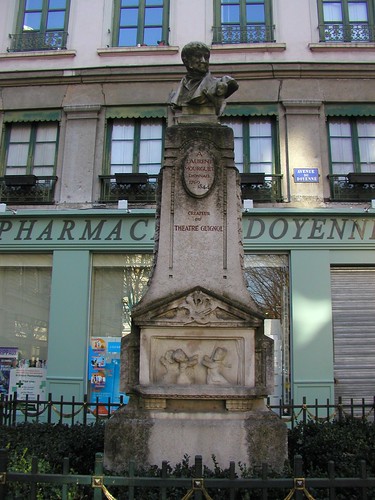
Suffice to say, the city was awash in puppets.
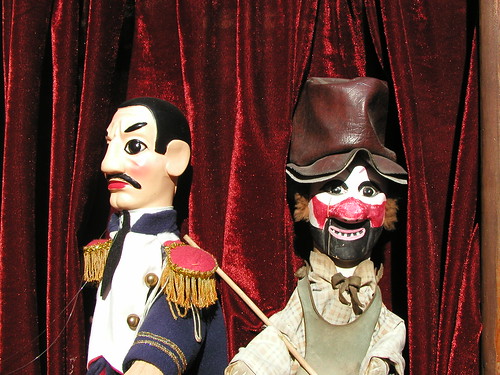




Even the local street art market carried the puppet theme into its works.

Monument to Guignol, Theatra Guignol, and Laurent Mourguet.

Suffice to say, the city was awash in puppets.





Even the local street art market carried the puppet theme into its works.

February Trip: the man known as Bocuse
Well, as if the Friday one-star Michelin restaurant located in our hotel was not enough to satisfy the "foodie" in us both, the "piece de la resistance" awaited us on Saturday evening. The man and his restaurant: Paul Bocuse.
http://www.bocuse.fr/accueil.aspx
Who is he? Paul Bocuse (born 11 February 1926) is a French chef, based in Lyon, famous for the high quality of his restaurants and his innovative approaches to cuisine. He is one of the most prominent chefs associated with the "nouvelle cuisine", which is touted as less opulent and calorific than the traditional classical French cuisine (not sure I personally experienced that on this evening) and stresses the importace of freshest quality ingredients.
Side note: Paul Bocuse was honored as the "Chef of the Century" by NYC's Culinary Institute of America in March of this year, about a month after our visit.
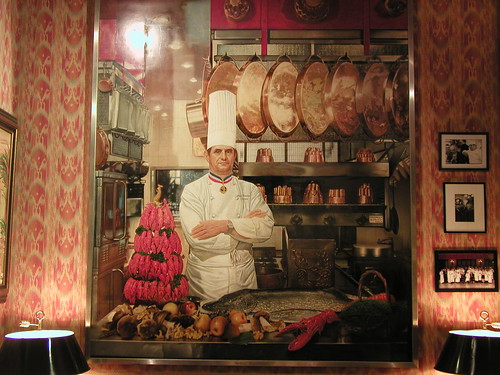
Although not a milestone b-day for the Budman, still a reason to celebrate; thus, we trundled off on Saturday evening to a 4 1/2 hour meal consisting of 10 courses.
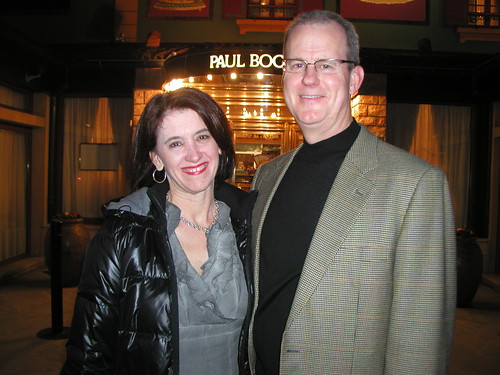
A photo with the Monsiuer Bocuse - too charming!
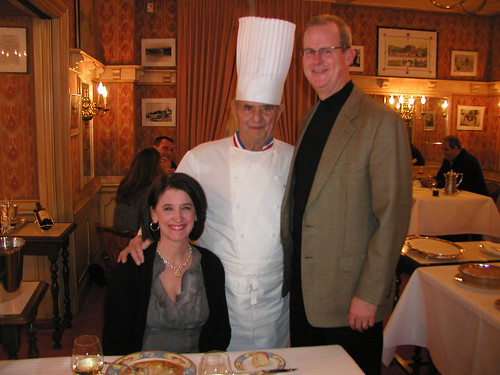
Without further ado, our selections:
http://www.bocuse.fr/accueil.aspx
Who is he? Paul Bocuse (born 11 February 1926) is a French chef, based in Lyon, famous for the high quality of his restaurants and his innovative approaches to cuisine. He is one of the most prominent chefs associated with the "nouvelle cuisine", which is touted as less opulent and calorific than the traditional classical French cuisine (not sure I personally experienced that on this evening) and stresses the importace of freshest quality ingredients.
Side note: Paul Bocuse was honored as the "Chef of the Century" by NYC's Culinary Institute of America in March of this year, about a month after our visit.

Although not a milestone b-day for the Budman, still a reason to celebrate; thus, we trundled off on Saturday evening to a 4 1/2 hour meal consisting of 10 courses.

A photo with the Monsiuer Bocuse - too charming!

Without further ado, our selections:
MENU GRANDE TRADITION CLASSIQUE
Bocuse appetizers for the table - potpourri of little morsels
Scallop of Foie Gras, pan-cooked and served with verjus sauce
Truffle Soupe V.G.E.
(dish created for the French President in 1975)
Filey of Sole with noodles, "a la Ferand Point"
Beuajois Winemaker's Sherbert
Bress Chicken cooked in a bladder "a la Mere Filloux"
Selection of fresh and matured cheeses from "La Mer Richard"
Delicacies and Tempations
(every kind of possible dessert - over different 24 options)
Fantasies and Chocolates
The cheese bladder before puncture.
Cheese board....take what you want. Budman is flagging at the point and passes, but the Hachie Gal's gastronomique marathon is in full force, and she surges ahead with selections from the cheese tray. This is definitely known as "hitting the wall" to use a running term.
About half of the desserts we actually were able to choose from...and we could have had one of everything if we'd wanted. I counted over 24 different desserts options.
Singing "happy birthday" to the Budman with the organ grinder in the background. Charming!
As if 10 courses were not enough food, including the dessert tray featured above, Budman then got his own birthday cake. Now, we are really groaning with aching stomaches.
At last, the taxi awaits us to take us back to our hotel...we are gorged!
February Trip: Lyon Traboules
Traboules are a type of passageway primarily associated with the city of Lyon, but are also located in a few other French cities as well. In Lyon, they were originally used by silk manufacturers and other merchants to transport their products.


The first examples of traboules are thought to have been built in Lyon in the 4th century. Lacking water, the inhabitants moved to the banks of the Saône River where the traboules allowed them to quickly get from their homes to the river as well as allowed the silk workers on the La Croix-Rousse hill to get quickly from their workshops to the textile merchants at the foot of the hill. Thus, most of the traboules in Lyon are located primarily in the 'old city' (5th arrondissement) and the Croix Rousse (1st and 4th arrondissements).
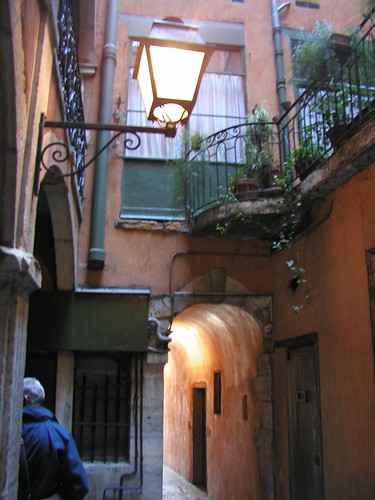
The layout of Vieux Lyon is such that there are very few connecting streets running perpendicular to the river. The traboules allowed workmen and craftsmen to transport clothes and other textiles through the city while remaining sheltered from inclement weather. For many inhabitants, being a "true Lyonnais" requires being knowledgeable about the city's traboules.
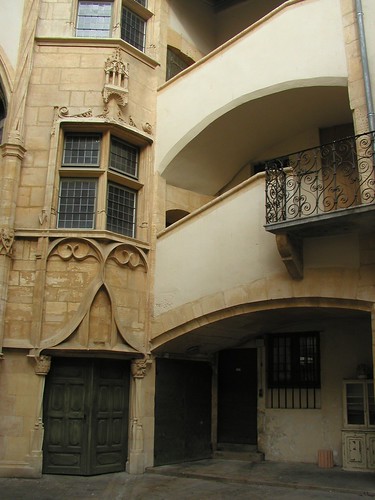
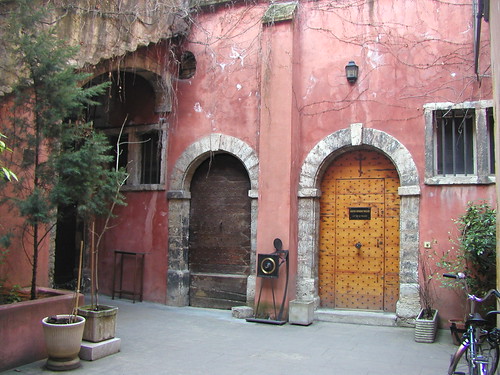
Nowadays, traboules are tourist attractions, and over forty are free and open to the public. Most traboules are on private property, serving as entrances to local apartments. Many, if not most, of the underground passages have been blocked off and are currently used as storage areas.
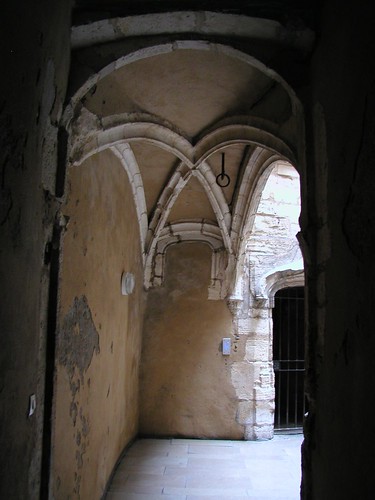
Interesting factoid: The traboules in Lyon are often credited with helping prevent the occupying Germans from taking complete control of Lyon during World War II as the local inhabitants scrambled through these narrow passageways, allowing resistance fighters to do great damage.



The first examples of traboules are thought to have been built in Lyon in the 4th century. Lacking water, the inhabitants moved to the banks of the Saône River where the traboules allowed them to quickly get from their homes to the river as well as allowed the silk workers on the La Croix-Rousse hill to get quickly from their workshops to the textile merchants at the foot of the hill. Thus, most of the traboules in Lyon are located primarily in the 'old city' (5th arrondissement) and the Croix Rousse (1st and 4th arrondissements).

The layout of Vieux Lyon is such that there are very few connecting streets running perpendicular to the river. The traboules allowed workmen and craftsmen to transport clothes and other textiles through the city while remaining sheltered from inclement weather. For many inhabitants, being a "true Lyonnais" requires being knowledgeable about the city's traboules.


Nowadays, traboules are tourist attractions, and over forty are free and open to the public. Most traboules are on private property, serving as entrances to local apartments. Many, if not most, of the underground passages have been blocked off and are currently used as storage areas.

Interesting factoid: The traboules in Lyon are often credited with helping prevent the occupying Germans from taking complete control of Lyon during World War II as the local inhabitants scrambled through these narrow passageways, allowing resistance fighters to do great damage.

Subscribe to:
Comments (Atom)







